
About HERD International
HERD International is a national research and development organisation in Nepal. Its vision is to promote health and well-being by generating quality evidence, and informing policy, strategies and practice.
HERD International brings diverse research expertise including national level household and health facility surveys, randomized controlled trials, operations research, implementation research, participatory approaches and ethnography. The team has contributed to policies, strategies and operational guidelines, that are reflected in the Ministry of Health and Population’s policies and strategies. At present, HERD International is a consortium partner providing FCDO-funded technical assistance to the Ministry for the effective implementation of the 2015-20 Nepal Health Sector Strategy, focusing on policy and planning, service delivery, evidence and accountability, public financial management, quality of care, health infrastructure and gender equality, and social inclusion in health sector.
More on HERD International on its website. [opens new tab]
HERD International and ReBUILD for Resilience
HERD International is a ReBUILD for Resilience partner. The team brings a range of expertise on health policy and systems strengthening, health financing and economics, evaluation of health systems interventions, including participatory research approaches. Through this partnership, HERD hopes to enhance its ongoing strategic engagement with policy practitioners and to help generate contextually appropriate evidence for resilient, equitable health systems.
HERD International projects
Follow the links for project details and outputs:
- Embedding Social Network Analysis in Health Systems Resilience Research
- The role of the diaspora in supporting health system resilience in fragile and shock-prone settings
- Assessment of the policy context and climate resilience capacity of health systems in Nepal
- Strengthening subnational health systems through support to public procurement and financial management: lessons from a technical assistance programme in Nepal
- Understanding health system resilience to respond to COVID-19 in a federalised context: a case study of health workforce management at sub-national level in Nepal
- Close-to-community providers addressing gender norms and power dynamics: participatory action research in fragile and shock-prone settings
- The gendered experience of close to community providers in fragile and shock-prone settings: implications for policy and practice during and post COVID-19
- Understanding and strengthening local health governance and planning to build resilient local health systems that leave no one behind: Nepal
- Podcast: Revisiting resilience in health systems research – listen here
- Podcast: Gender, health systems resilience and equity – listen here
Dr Sushil Baral
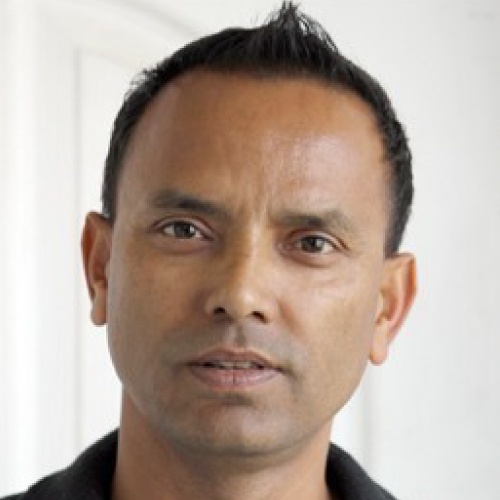
Managing director
Sushil is a principle investigator for HERD’s ReBUILD for Resilience team. He is public health researcher with nearly three decades of experience in health systems health policy and planning, embedded implementation research, and scale-up of evidence-based best practice with a long-term involvement in health sectors in developing countries. As former DFID/FCDO health adviser, he has contributed to the design and execution of DFID’s support of the Nepal Health Sector Programme 1 and 2, and managed the DFID support portfolio (around £55 million) to Nepal’s Ministry of Health and Population. His areas of expertise include designing and managing large-scale surveys, and conducting monitoring and evaluation-based studies and programme-based operational research.
Sushil holds a PhD from the University of Leeds, UK.
Shophika Regmi
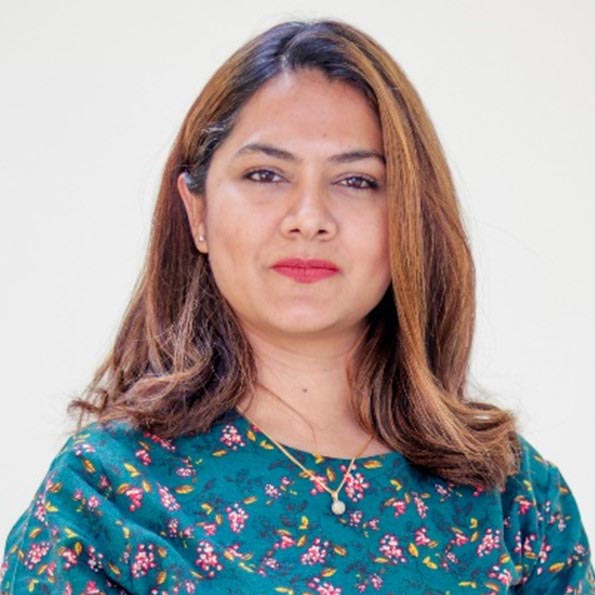
Senior manager – Health systems research, evaluation and learning
Within ReBUILD, Shophika primarily leads implementation research (in Learning Site 1 and Learning Site 2) that aims to strengthen the resilience capacity of the local health system through improved governance and evidence-based planning, serving as a Co-Investigator. She also coordinates wider research activities and manages HERD’s responsive fund research projects. With more than a decade of experience in health research, she has led several projects aimed at strengthening health systems for improved health outcomes, particularly among marginalised and vulnerable groups in areas such as maternal health, health workforce, nutrition, non-communicable diseases, climate change and health information system. Shophika has extensive experience of leading implementation research and evaluation studies, including national-level surveys, surveillance, and other mixed method research.
Shophika holds a Master’s in Public Health from the University of Sheffield, UK.
Abriti Arjyal

Research manager – qualitative and multidisciplinary science
Abriti is leading on HERD’s qualitative and participatory approaches during ReBUILD for Resilience, with a focus on gender and intersectionality. She has experience in public health, health systems, service delivery research, social science and gender, and equity. She has led formative and operational field studies, evaluation studies, and literature reviews, developing expertise in design, implementation and analysis of qualitative research, rapid ethnography and various community and participatory based approaches. Abriti is also experienced in the analysis of qualitative data using data management software and frameworks.
Most of Abriti’s work has focused on gender and resilience, including maternal and child health, antibiotic resistance, disaster risk reduction and resilience, nutrition, diabetes, and violence against women.
Dr Ghanshyam Gautam
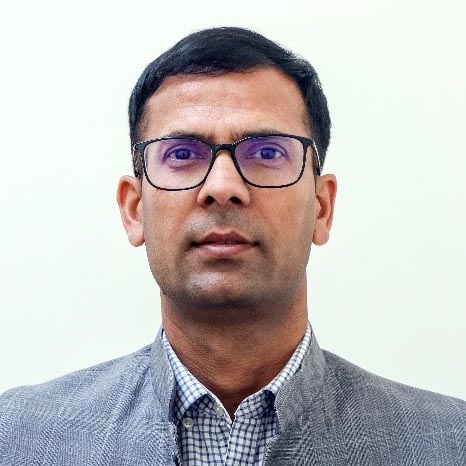
Health Economics, Systems and Social Protection lead
Ghanshyam has more than 20 years’ experience in health policy and systems reform. Within ReBUILD, he contributes to governance, systems financing and capacity strengthening, with expertise in policy and strategic reform, health systems strengthening, health financing and social protection. Throughout his career, Ghanshyam has provided technical assistance to government entities, diverse bilateral and multilateral agencies and other organisations. He has been governance advisor in a FCDO-funded programme, playing a crucial role in reframing health policy and systems reform in Nepal, and while working with German International Cooperation engaged in developing a regulatory framework and designing a national health insurance scheme. As a health economist he has also supported the Afghanistan health ministry on health financing reform, policy processes and strengthening institutional capacity.
Ghanshyam holds a PhD from Osaka Sangyo University, Japan.
Anil Dhungana
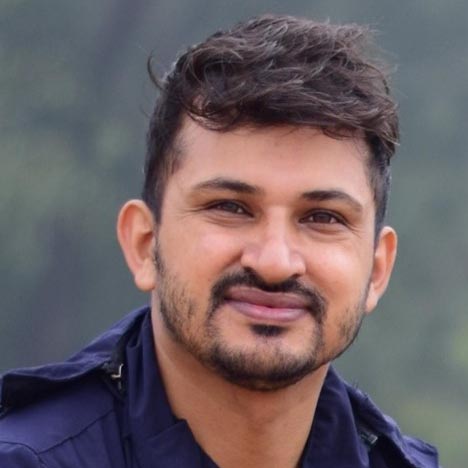
Research coordinator
Anil is embedded in ReBUILD’s Learning Site 1 where he supports evidence-informed decision making and improving governance mechanisms through technical and capacity building support. He also plays key roles in coordination across municipalities and research teams and ensures the implementation of interventions in Learning Site 2.
Anil has previously worked with NHSSP as part of UKaid support to Nepal and has extensive experience working with subnational governments in nutrition, health, and water sanitation and hygiene.
Anil holds a Master’s in Sociology from Tribhuvan University and a Bachelor’s in Public Health from Purbanchal University, Nepal.
Aney Rijal

Qualitative Research Officer
Aney is a public health professional and implementation research enthusiast. She is primarily engaged in developing methods to support and study optimal ways to monitor and evaluate research activities to translate evidence into practice.
Her research includes designing and evaluating implemention strategies for strengthening health system resilience, and is currently ensuring activity implementation at Learning Site 1 .
Aney also has experience of mixed-method research in mental health, health insurance and infectious diseases.
Aney holds a Master’s degree in Public Health with a specialization in Implementation Research from Universitas Gadjah Mada, Indonesia.
Ichchhya Rupakheti

Senior Research Officer
Having been engaged in the public health sector for several years, Ichchhya has developed a great understanding of Nepal’s health system. She has managed multiple research projects related to health systems readiness for emergencies, health service delivery and female empowerment. She has also been engaged in health sector budget analysis of the sub-national level and contributed to the preparation of Budget Analysis Framework as part of NHSSP (UKaid support to Nepal’s health system).
As a member of ReBUILD for Resilience (Learning Site 2) team, she is engaged in ensuring day-to-day implementation of activities, collection and analysis of data including data from process documentation. She is involved in analysis of the allocation and expenditure of health sector budget in learning site 1 and 2.
Ichchhya holds a Master’s in Public Health from Tribhuvan University, Nepal.
Nawaraj Adhikari

Project Coordinator
Nawaraj is the embedded researcher for ReBUILD’s Learning Site 2, where he provides technical support to the local municipality and leads interventions at community level, focusing on maternal and child health. His roles involve technical support, documentation of learnings and challenges, and intervention implementation. He has experience in project management, monitoring and evaluation in areas such as family planning/reproductive health, menstrual hygiene management, HIV/AIDS, maternal and child health, non-communicable diseases, local health system strengthening and health information system, often with. I/NGOs.
Nawaraj holds a Master’s degree in public administration, majoring in public policy analysis, and implementation from Tribhuvan University and a Bachelor’s degree in Public Health.
Bishnu Dulal

Quantitative data analyst
Bharat Bhatta

Senior Officer- Health Systems Research
Bharat has more than a decade of experience in health systems research including design and implementation, national-scale health surveys and mixed method studies. Within ReBUILD, Bharat is primarily engaged in the climate change and health systems study which aims to assess the policy context and climate resilience capacity of the health systems in Nepal.
Bharat has worked with the government health system and also with the WHO and international organizations. His experiences include mixed methods research, diseases surveillance, strengthening information systems for surveillance, COVID-19 pandemic response, post-earthquake health sector recovery and project management.
Bharat holds a Master’s in Global Health from University of Tokyo, Japan.
Sulata Karki
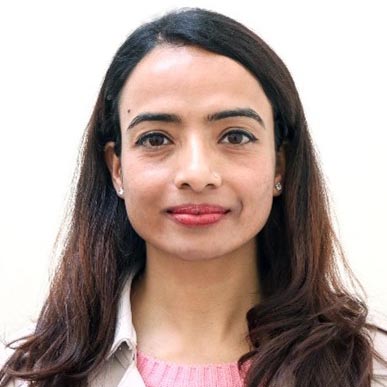
Public Health Researcher
As a mixed-method researcher, Sulata has actively engaged in implementation research, surveys, and evaluation studies, focusing on maternal health, non-communicable diseases, and mental health.
Within ReBUILD, Sulata implements the Nepal aspect of the Close-to-community providers addressing gender norms and power dynamics study.
Sulata holds a Master’s degree in Public Health from B.P. Koirala Institute of Health Sciences, Nepal.
Ranjit Satar
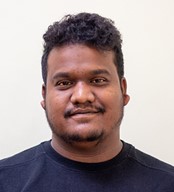
Audio Visual Communication Officer
Ranjit is an experienced film maker with much experience in photography, videography and AV editing. He has participated in several film festivals and has been awarded several titles. He is highly creative, resourceful and enthusiastic, with a track record of efficiently delivering quality products.
In ReBUILD, Ranjit’s responsibilities include ideation, scripting, video shooting, and post-production audio visual editing of project-related audio visuals.
He holds a Bachelor’s degree in Fine Arts with the major in painting from Tribhuvan University, Nepal.





